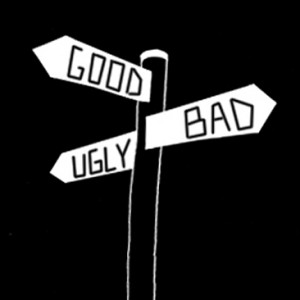This blog post came from a suggestion from Andre Du Preez and many ideas were added by my facebook traders group. Thanks to all that added value to this post, Simon Goodchild, Brian Chang, Scott Gibbons, Harry Lamborn, Lisa Wareham, Stephen Doubell, Luis Pereira, Matthew Smith, and Joey Gueits.
10 Good Things That Are Bad For New Traders
-
Making money too quickly when first starting out as a trader leading to an inflated ego and not really learning how to trade. Usually just benefiting from a market environment that rewarded the new traders specific trading behavior.
-
Moving a stop loss then the market turns around and the new trader makes a bag load of money and bad behavior is reinforced. Counter trend trading in the long run by lowering stops is a formula for eventual disaster no matter how many times it is rewarded in the short term.
-
Making a big win on an untested and not clearly defined trading method. Their wins can not be replicated and were possibly just luck.
-
A big lucky win, or worse, two big lucky wins. This encourages taking big risks in the future which will likely lead to big losses that give back those winning profits.
-
100% profit in UVXY and think its a long term investment.
-
They’re trading in the direction of a bubble and think they’re geniuses. When the bubble pops they will have no idea what to do.
-
Successfully trading a paper account and not understanding the problems and obstacles of emotions and ego when real money was at stake in a real trading account.
-
Money comes too quick and easy so they are set up for failure when the market changes and it becomes difficult to be profitable. Quick and easy success sets up most new traders to quit when the going gets rough becasue they are not use to losing at all.
-
Averaging down in a losing trade and it rebounds and rewards the new trader, this teaches the new trader a terrible habit that will eventually blow up their account when a trend is in place that does not revert to the mean until it is too late for the traders account.
-
Using an untested strategy that has a high win percentage and confusing it with positive expectancy. Due to the confusion, scaling the risk sizing to “oh crap, that loss is half my account”.
-
Having a huge profit in a growth stock or a bubble but not knowing how or when to exit and lock them in.
-
Confusing a bull market for brains.
